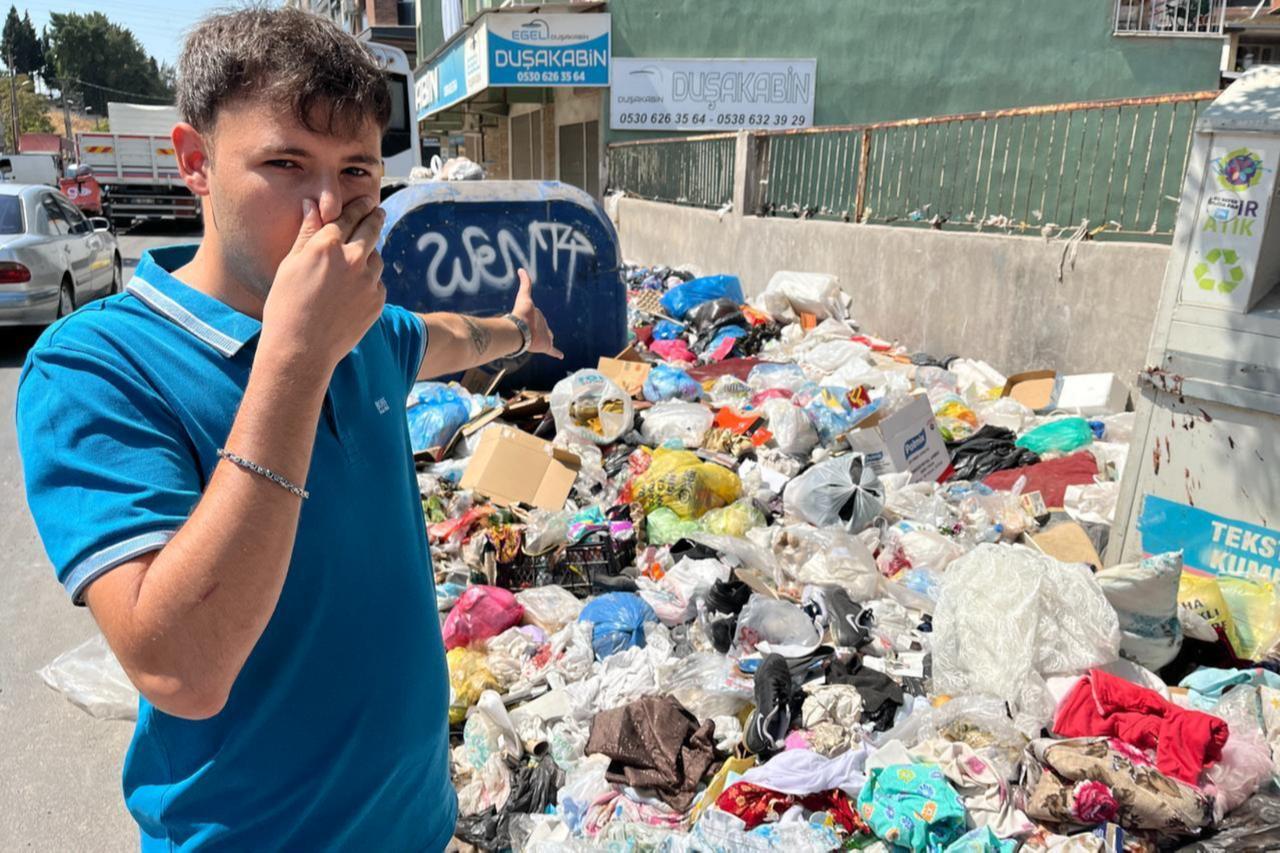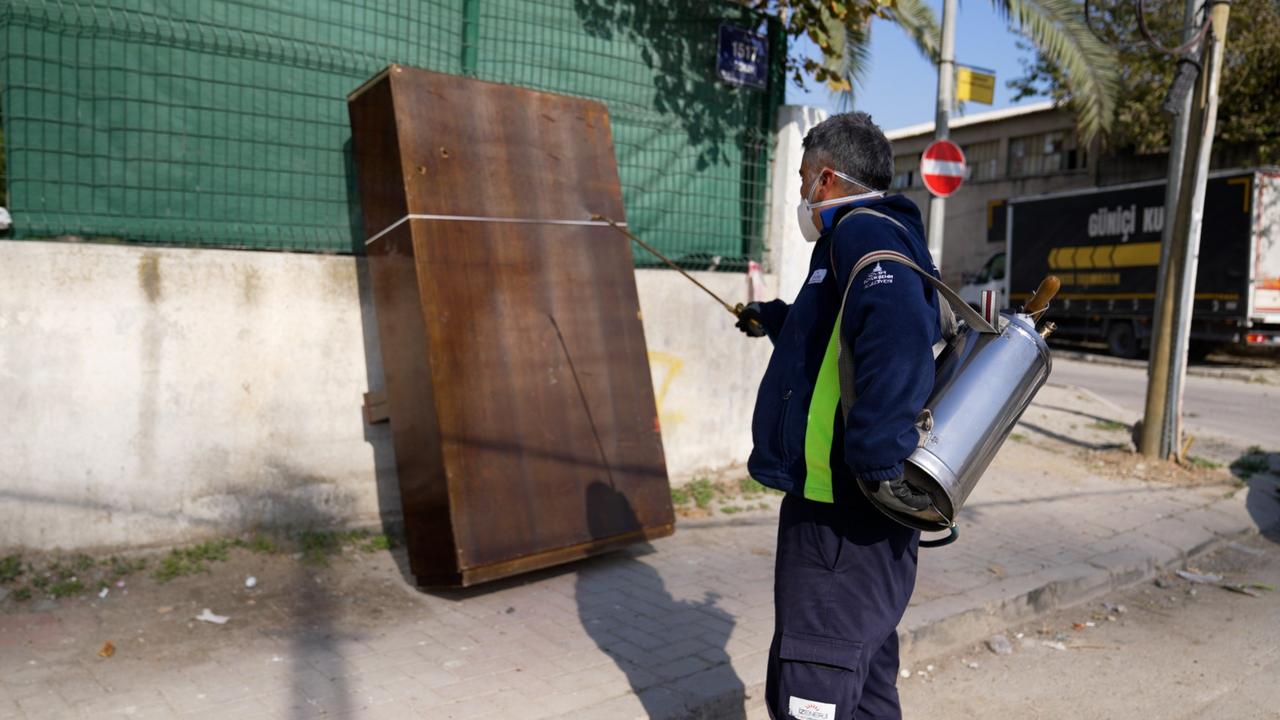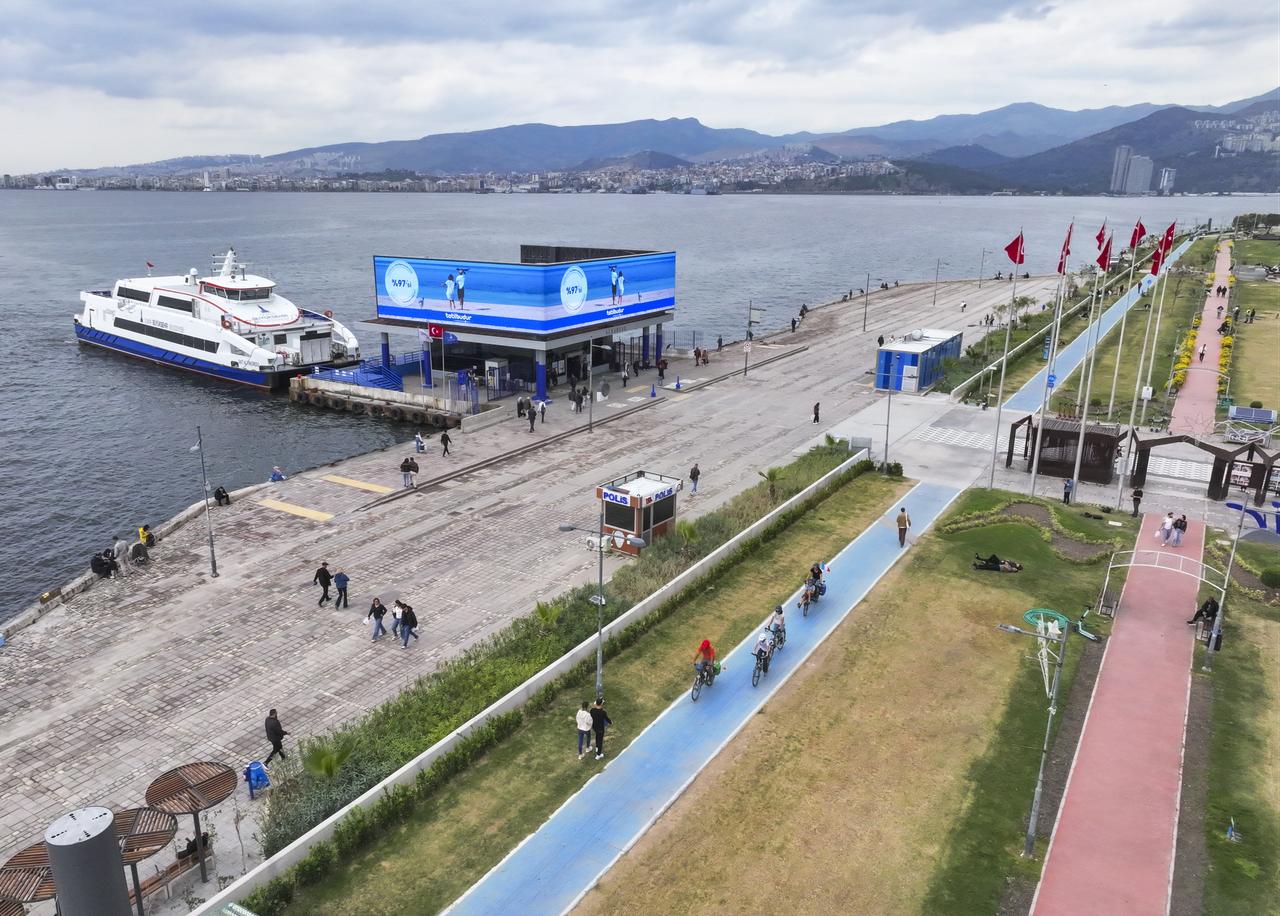
Izmir is facing an unusual and increasingly persistent surge in flies this season, one that has lingered well past the point when cooler weather typically brings relief.
What residents are experiencing is not simply a matter of inconvenience; it reflects a deeper combination of sanitation challenges, climate pressures, and operational disruptions within municipal services.
The city’s waste management system has shown signs of strain for months, and recent developments have added new pressure. Workers at the Karsiyaka Municipality have not received regular salaries for nearly six months, prompting occasional work stoppages at the Turkish all-news broadcaster NTV.
Even brief interruptions in garbage collection leave noticeable piles of waste on streets, particularly in Karsiyaka and Konak, where residents have been increasingly vocal about the growing odor and unsanitary conditions.
These localized disruptions compound long-standing issues: overflowing dumpsters, leaking garbage fluids, and inconsistent pickup cycles that create ideal breeding grounds for houseflies. As trash accumulates, the insects thrive, gaining access to abundant organic material that accelerates their reproduction.

Adding to the challenge, the region continues to experience higher-than-normal temperatures despite the arrival of November. Warmer conditions have extended the active season for flies, allowing them to survive and multiply at times when populations usually decline. The prolonged heat effectively removes the seasonal barrier that once limited their lifespan and reproductive cycle.
The intersection of warm weather and exposed waste has created an environment in which fly numbers rise rapidly, regardless of the calendar. Climate variability has made seasonal forecasting less reliable and has revealed how vulnerable urban systems can become when waste management and environmental conditions align unfavorably.
The situation now poses meaningful public health concerns. Houseflies function as mechanical carriers of microorganisms, moving bacteria from waste sites into residential spaces and food preparation areas. In neighborhoods where garbage has remained uncollected for several days at a time, the risk of contamination increases, particularly for families living near frequently overflowing collection points.
Although municipal teams conduct routine pesticide spraying, such measures offer only temporary relief. Chemical interventions may reduce adult populations for a short period, but they do not address the underlying conditions that allow larvae to develop in large numbers.

Izmir’s waste issues are not new. Over recent years, the municipality has faced financial constraints that periodically disrupted sanitation services.
Worker strikes in several districts previously resulted in prolonged trash accumulation, and the city has also incurred fines tied to wastewater treatment failures and improper disposal practices, including incidents of illegal dumping that affected coastal waters.
These events collectively weakened confidence in the city’s capacity to maintain consistent sanitation standards. They also contributed to environmental vulnerabilities that, over time, made fly outbreaks more likely during periods of operational disruption or climatic stress.
While residents can mitigate some risks by properly sealing household waste and supporting recycling practices, the broader solution requires coordinated municipal action.
Consistent waste collection, adequate staffing, and stable financial operations remain essential to preventing similar surges in the future. The current situation demonstrates how quickly localized disruptions, such as unpaid salaries or delayed pick-ups, can escalate when paired with environmental conditions favorable to insect growth.
Izmir’s experience this season highlights a wider pattern increasingly observed in many coastal cities: a tightening link between climate extremes, infrastructure strain, and public health pressures. Unless structural improvements are implemented, both in waste management systems and in climate adaptation planning, the city risks facing recurrent episodes of similar or greater scale in the years ahead.